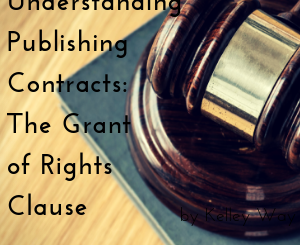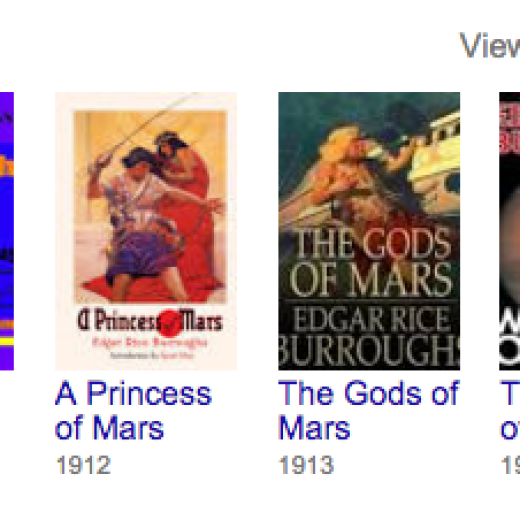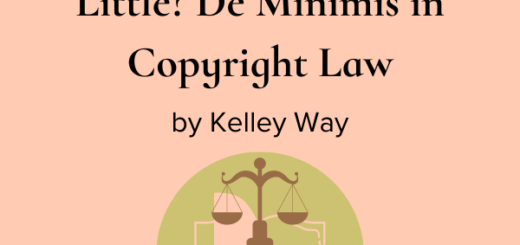The Difference Between Copyrights, Trademarks and Patents by Kelley Way
 Let’s welcome back monthly columnist Kelley Way as she shares with us “The Difference Between Copyrights, Trademarks and Patents.” Enjoy!
Let’s welcome back monthly columnist Kelley Way as she shares with us “The Difference Between Copyrights, Trademarks and Patents.” Enjoy!
***
When it comes to intellectual property law, the most frequently asked question is what’s the difference between copyrights, trademarks, and patents?
Let me explain what each of these concepts means and what each protects.
To start with the basics, “intellectual property” refers to assets that have value and can be bought or sold but aren’t physical items that can be touched. For example, copyrights, trademarks, and patents are all different types of intellectual property.
- A copyright is a bundle of rights that are given to creative works, such as books, movies, music, and artwork.
The more creative and original a work is, the more protection it gets under copyright law. A copyright gives the owner the exclusive right to copy the work (hence the name), sell it in the marketplace, and make new works that are based on the original, among other things.
It’s important to remember that copyright does not protect ideas or facts, only the creative expression of those ideas or facts.
2. A trademark serves to identify the source of a product or service in the marketplace.
Company names, logos, and slogans are typical examples of trademarks, but anything that consumers will recognize and connect to the company can be used as a trademark. Trademark law prevents others from using your mark in a way that confuses or deceives consumers as to the origin of a product or service. I should note that a mark does not have to be identical to yours to be infringing, just similar enough to confuse consumers.
3. A patent protects formulas, inventions, processes, and the like and prevents others from using, making, or selling your protected material for the patent duration.
Unlike copyright and trademark, you must register your invention with the U.S. Patent and Trademark Office to have a patent. In addition, the application must be submitted within a specific time window.
Hopefully, that sheds some light on what’s the difference between copyright, trademark, and patent.
If you’d like to learn more about that or intellectual property generally, please feel free to read my previous blog articles, or simply watch my videos on these subjects on YouTube:
https://www.youtube.com/channel/UC_CBZdIJWT9CthtY6oyWvnA
If you still have questions after that, you are welcome to email me at kaway@kawaylaw.com.
***
Want to read more articles like this one Writer’s Fun Zone? Subscribe here.
***
ABOUT THE AUTHOR
Kelley Way was born and raised in Walnut Creek, California. She graduated from UC Davis with a B.A. in English, followed by a Juris Doctorate. Kelley is a member of the California Bar, and an aspiring writer of young adult fantasy novels. More information at kawaylaw.com.
***
OTHER WFZ RESOURCES
https://writersfunzone.com/blog/2021/06/08/what-is-copyright-by-kelley-way
https://writersfunzone.com/blog/2021/09/10/when-should-i-register-a-trademark-by-kelley-way
https://writersfunzone.com/blog/2014/02/26/intellectual-property-rights-novelists-tate-handy







